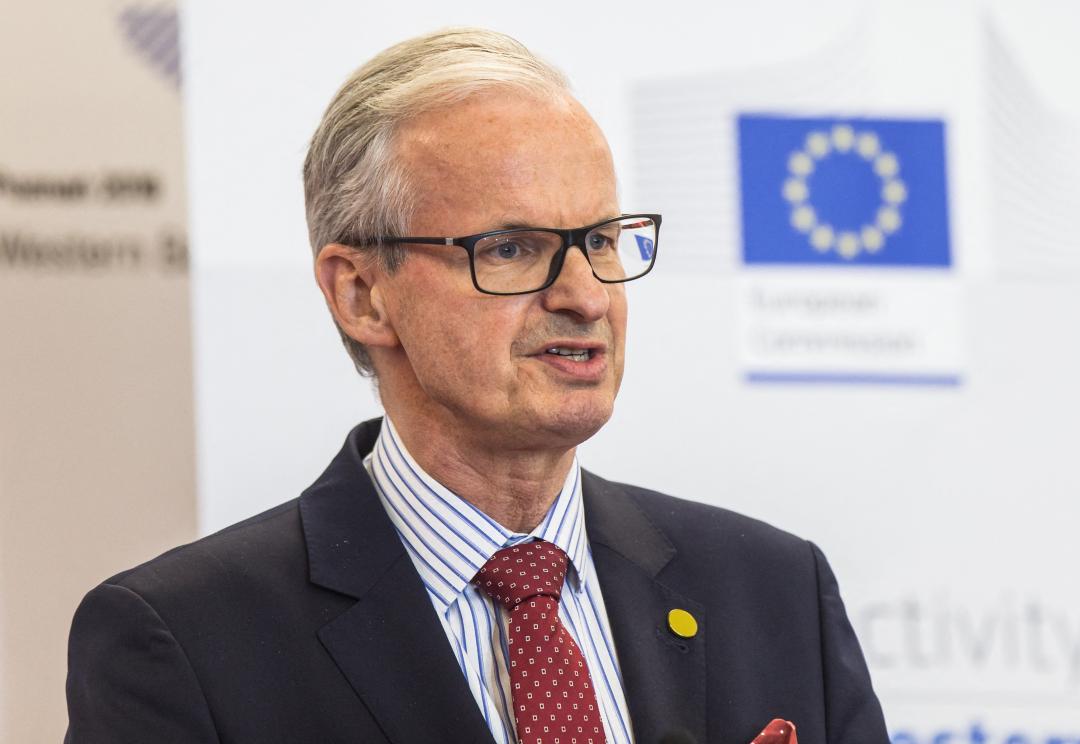
EU-mediated negotiations in Georgia fail

On 19 March, the EU-mediated talks between the ruling Georgian Dream party and opposition on the issues of repeat parliamentary elections and the release of two opposition representatives (United National Movement leader Nika Melia and Mtavari Arkhi TV owner Giorgi Rurua) ended without a result and the EU appointed mediator Christian Danielsson left for Brussels.
Danielsson told the media after the many-hour negotiations between the ruling party and the opposition that less progress was made on some issues in the political crisis-related talks. “Some important progress was made on several aspects of European Council President Charles Michel’s six-point plan. And this is welcome and indispensable to address the underlined issues of the crisis. However, on other issues, less progress was made,” he stated.
“Ultimately, the responsibility to find a solution to this political crisis is that of Georgia’s political leaders. This is essential for the country’s democratic consolidation and its European aspirations. I hope that the parties will now seriously reflect on the situation and on the way forward and that a necessary willingness to compromise that will permit a successful outcome to this mediation process will become more evident. I truly believe this is what the Georgian people deserve,” he added. “Ending the political crisis would mean that Georgian leaders can focus their full attention on Covid-19 and its social-economic consequences, advancing on the EU agenda and defending Georgia’s security interests in the region. Those are the real challenges that this country is facing,” Danielson stressed.
The ruling Georgian Dream party and the opposition traded accusations after the negotiations failed. “It turned out that the opposition intended to disrupt the talks,” stated the GD chairman Irakli Kobakhidze. “There has been progress these days. But apparently, it was an end in itself for the opposition not to reach an agreement. This was reflected in the specific ultimatums by the opposition, including those aimed at undermining the rule of law. Naturally, such ultimatums are absolutely unacceptable in the dialogue process. I mean trampling on the rule of law. It turned out that the opposition’s intention was to disrupt these talks. We know that a particular politician from Kyiv, Mikheil Saakashvili, runs this opposition spectrum. I do not mean everyone in opposition but a destructive part. Consequently, they naturally had no resource to agree. That was the main reason why they ultimately broke the agreement,” he further highlighted.
Akaki Minashvili of the United National Movement, the largest opposition party in the country said that “the Georgian Dream once again closed the door to Europe,” noting that the ruling party rejected the release of alleged political prisoners and the snap elections, two of the opposition’s key demands.
“The process is halted for the moment. Our main partners would discuss the situation in Brussels. We will be constantly involved in the dialogue. Agreement failed at this stage as the Georgian Dream demonstrated inflexibility,” the opposition Lelo for Georgia party leader Badri Japaridze said. According to Japaridze, the mediators developed interesting ideas on the institutional development and development of democracy in Georgia, but the GD did not agree with these ideas.
“The political forces have to go beyond the closed space and find a new format for negotiations where the media will be aware of what the politicians are talking about,” said Vakhtang Megrelishvili, a member of the opposition Girchi party. According to him, the politicians did not arrive at the negotiations table ready to reach an agreement. “The points do not matter. We should release ourselves from the captivity of points. A compromise acceptable for both sides is always possible,” he said. Megrelishvili added that all politicians failed in the end, and nobody should be blamed for that failure.
“The Georgian Dream greatly blew Georgia’s Euro-Atlantic prospects,” stated the Strategy Aghmashenebeli leader Giorgi Vashadze. According to Vashadze, the European side considered the conditions set by the Georgian Dream party as “not fair” and “incompatible with the European standards.” He also claimed that the ruling party used the international image of the European Council President Charles Michel in the negotiations and that it played a game and lied to the public.
The leader of the opposition Citizens’ party Aleko Elisahvili also revealed some details of the negotiations. “The Georgian Dream suggested calling early elections in 2022 if the ruling party wins less than 40% in the local elections. The opposition renounced this proposal,” stated the leader of the opposition Citizen’s party Aleko Elisahsvili. He stressed that his party was shocked at the rejection of judicial reform, political justice and prosecutor general’s issue, court reform, demand for early elections and a plebiscite. He also said that the opposition was offered to head two leading committees. “This issue was on the negotiation table. For some, it may be a job bargain, but it was titled the Redistribution of Power in Parliament. An agreement would have been reached if the intention was real, but the opposition proposed nothing but the early elections and a plebiscite while the Georgian Dream backed down on some issues,” he emphasised.
See Also


Armenia Records 5.9% GDP Growth in 2024, Missing 7% Goal

Yerevan Balances Strategic Ties with Both US and Russia, Says Foreign Minister

FM Mirzoyan: Peace Deal with Azerbaijan Is Within Reach

Pashinyan and Erdogan Hold Call, Reaffirm Commitment to Ongoing Dialogue

